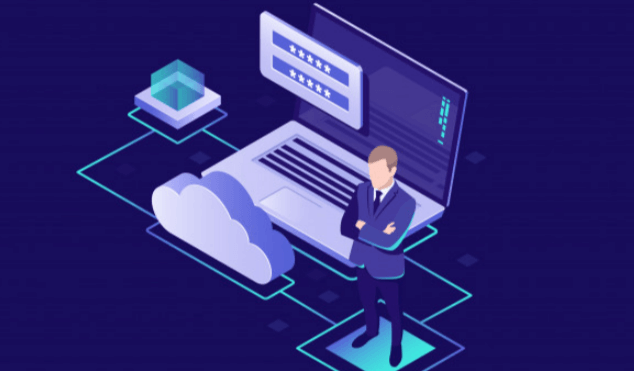piciokenet

Introduction
In the ever-evolving landscape of technology, the term Piciokenet has emerged as a significant player. This comprehensive guide aims to unravel the intricacies of Piciokenet, providing a detailed overview of its features, applications, and potential benefits. Whether you’re a tech enthusiast, a professional looking to integrate new technology, or simply curious about the latest advancements, this article will serve as a valuable resource. Let’s dive into the world of Piciokenet and explore what makes it a groundbreaking innovation.
What is Piciokenet?
Piciokenet is an innovative technological framework designed to enhance connectivity, data management, and process automation across various industries. Originating from advanced research in network systems and data science, Piciokenet combines multiple functionalities to create a seamless and efficient digital environment.
Definition and Origin
Piciokenet, derived from the combination of “Pico” (meaning small) and “Network,” symbolizes the integration of micro-network systems to facilitate large-scale operations. Initially conceptualized in research labs, it has now evolved into a robust framework utilized by numerous organizations globally.
Core Principles
The core principles of Piciokenet revolve around decentralization, scalability, and efficiency. By leveraging distributed computing and advanced algorithms, Piciokenet ensures optimal performance even in complex and large-scale environments.
The Evolution of Piciokenet
Historical Development
The journey of Piciokenet began in the early 2000s with the advent of micro-networking technologies. Over the years, it has undergone significant transformations, incorporating cutting-edge advancements in data science, machine learning, and cloud computing.
Key Milestones
- 2005: Initial concept and development
- 2010: First commercial implementation
- 2015: Integration with cloud platforms
- 2020: Introduction of AI-enhanced features
How Piciokenet Works
Technical Overview
Piciokenet operates on a distributed architecture, where multiple nodes work collaboratively to manage data and processes. This decentralized approach ensures high availability, fault tolerance, and scalability.
Mechanisms
- Data Distribution: Efficiently manages data across nodes to minimize latency.
- Process Automation: Utilizes machine learning algorithms to automate routine tasks.
- Security Protocols: Implements robust encryption and access control mechanisms to safeguard data.
Key Features of Piciokenet
Unique Attributes
Piciokenet stands out due to its unique blend of features, including real-time data processing, adaptive learning capabilities, and seamless integration with existing systems.
Capabilities
- Real-Time Analytics: Provides instant insights from large data sets.
- Adaptive Algorithms: Continuously learns and adapts to optimize performance.
- Seamless Integration: Easily integrates with various IT infrastructures.
Applications of Piciokenet
Industry Uses
Piciokenet finds applications in diverse sectors such as healthcare, finance, manufacturing, and education. Its versatility makes it suitable for various operational needs.
Case Studies
- Healthcare: Enhanced patient data management and predictive analytics.
- Finance: Improved risk assessment and fraud detection.
- Manufacturing: Streamlined supply chain management.
Benefits of Implementing Piciokenet
Efficiency
By automating routine processes and optimizing data management, Piciokenet significantly enhances operational efficiency.
Cost Savings
Reduction in manual labor and improved resource utilization lead to substantial cost savings for organizations.
Challenges and Limitations
Potential Drawbacks
While Piciokenet offers numerous benefits, it also comes with challenges such as initial setup costs and the need for specialized skills.
Solutions
Organizations can overcome these challenges by investing in training and leveraging support from the Piciokenet community.
Integrating Piciokenet into Existing Systems
Steps
- Assessment: Evaluate current systems and identify integration points.
- Planning: Develop a detailed implementation plan.
- Execution: Deploy Piciokenet in phases to minimize disruption.
Best Practices
- Stakeholder Involvement: Ensure all stakeholders are engaged throughout the process.
- Continuous Monitoring: Regularly monitor performance and make adjustments as needed.
Future Trends and Predictions
Innovations
Future developments in Piciokenet are expected to focus on enhancing AI capabilities and improving interoperability with other technologies.
Market Impact
As Piciokenet continues to evolve, it is likely to become a critical component of digital transformation strategies across industries.
Piciokenet vs. Traditional Technologies
Comparative Analysis
Compared to traditional technologies, Piciokenet offers superior scalability, flexibility, and efficiency. Its decentralized nature ensures better performance and reliability.
Success Stories
Companies
Several companies have successfully implemented Piciokenet, achieving significant improvements in their operations.
Testimonials
Users of Piciokenet frequently report enhanced efficiency, reduced costs, and improved data management capabilities.
Piciokenet in Different Sectors
Healthcare
In healthcare, Piciokenet is revolutionizing patient data management, predictive analytics, and telemedicine.
Finance
The financial sector benefits from Piciokenet through improved risk management, fraud detection, and real-time analytics.
Education
Educational institutions leverage Piciokenet to enhance learning management systems, student data analytics, and administrative efficiency.
Getting Started with Piciokenet
Installation
Installing Piciokenet involves setting up the necessary hardware and software components, followed by configuration to suit specific organizational needs.
Configuration
Proper configuration ensures that Piciokenet operates efficiently, taking into account the unique requirements of the organization.
Piciokenet for Beginners
Basic Concepts
For beginners, understanding the basic concepts of Piciokenet, such as its architecture and key features, is crucial for effective implementation.
Easy Implementation
Piciokenet offers user-friendly tools and resources to facilitate easy implementation, even for those with limited technical expertise.
Advanced Piciokenet Techniques
Expert Tips
Experts recommend regular updates, continuous monitoring, and leveraging advanced features to maximize the benefits of Piciokenet.
Optimization
Optimizing Piciokenet involves fine-tuning its settings, utilizing advanced algorithms, and integrating with other technologies to enhance performance.
Piciokenet Security
Safeguarding Data
Piciokenet implements robust security protocols to protect data from unauthorized access and cyber threats.
Compliance
Ensuring compliance with industry standards and regulations is a critical aspect of Piciokenet implementation.
Cost Considerations
Budgeting
Organizations should carefully budget for the initial setup, ongoing maintenance, and potential upgrades when implementing Piciokenet.
ROI
The return on investment for Piciokenet is typically high due to improved efficiency, cost savings, and enhanced data management capabilities.
Piciokenet and Big Data
Integration
Piciokenet integrates seamlessly with big data platforms, enabling organizations to manage and analyze vast amounts of data efficiently.
Analysis
Advanced analytics capabilities of Piciokenet facilitate real-time insights and data-driven decision-making.
Enhancing Business Processes with Piciokenet
Workflow Improvement
Piciokenet streamlines business processes by automating routine tasks, improving data accuracy, and enhancing overall workflow efficiency.
Training and Resources
Learning Platforms
Numerous learning platforms offer courses and certifications in Piciokenet, providing valuable knowledge and skills.
Certification
Obtaining certification in Piciokenet can enhance career prospects and validate expertise in this technology.
Piciokenet Community and Support
Forums
Online forums and communities provide a platform for users to share experiences, seek advice, and stay updated on the latest developments in Piciokenet.
Help Centers
Dedicated help centers offer support and resources to assist users in troubleshooting and optimizing their Piciokenet systems.
Open Source Piciokenet Tools
Free Resources
There are several open-source tools available for Piciokenet, allowing organizations to customize and enhance their implementations without additional costs.
Customization
Open-source tools provide flexibility for organizations to tailor Piciokenet to their specific needs.
Ethical Considerations
Responsible Use
Ensuring the responsible use of Piciokenet involves adhering to ethical guidelines and best practices to prevent misuse and protect user privacy.
Privacy
Implementing robust privacy measures is essential to safeguarding personal and sensitive data within Piciokenet systems.
Common Misconceptions
Myths
There are several misconceptions about Piciokenet, such as it being too complex or costly to implement. Dispelling these myths is crucial for widespread adoption.
Facts
The reality is that Piciokenet is a versatile and cost-effective solution that can be tailored to suit various organizational needs.
Piciokenet in the Cloud
Cloud Integration
Integrating Piciokenet with cloud platforms offers numerous benefits, including enhanced scalability, flexibility, and reduced infrastructure costs.
Benefits
Cloud-based Piciokenet solutions provide easy access, improved collaboration, and efficient data management.
Piciokenet and Artificial Intelligence
Synergies
The integration of Piciokenet with artificial intelligence technologies opens up new possibilities for automation, data analysis, and decision-making.
Applications
AI-enhanced Piciokenet systems are being used in predictive analytics, customer service automation, and more.
Performance Metrics
KPIs
Key performance indicators for Piciokenet include system uptime, data processing speed, and user satisfaction.
Benchmarks
Regular benchmarking helps organizations assess the performance of their Piciokenet systems and identify areas for improvement.
User Experience with Piciokenet
Interface
A user-friendly interface is crucial for ensuring that users can effectively navigate and utilize Piciokenet.
Usability
Ongoing usability testing and feedback are essential for continuously improving the user experience.
Regulatory Compliance
Legal Requirements
Compliance with legal requirements and industry standards is a critical aspect of Piciokenet implementation.
Standards
Adhering to established standards ensures the reliability and security of Piciokenet systems.
Conclusion and Future Outlook
Summary
Piciokenet represents a significant advancement in network technology, offering numerous benefits and applications across various industries. Its unique features, coupled with continuous innovation, make it a valuable tool for organizations looking to enhance efficiency and data management.
Projections

The future of Piciokenet looks promising, with ongoing developments poised to further expand its capabilities and applications. As more organizations adopt this technology, Piciokenet is set to play a pivotal role in the digital transformation journey.
FAQs
What is Piciokenet? Piciokenet is an advanced technological framework designed to enhance connectivity, data management, and process automation.
How does Piciokenet work? Piciokenet operates on a distributed architecture, leveraging multiple nodes to manage data and processes efficiently.
What are the benefits of using Piciokenet? Benefits include enhanced efficiency, cost savings, real-time analytics, and improved data management.
What industries can benefit from Piciokenet? Industries such as healthcare, finance, manufacturing, and education can significantly benefit from Piciokenet.
Is Piciokenet secure? Yes, Piciokenet implements robust security protocols to protect data and ensure compliance with industry standards.
How can I get started with Piciokenet? Getting started involves assessing current systems, planning the implementation, and configuring Piciokenet to meet specific organizational needs.





